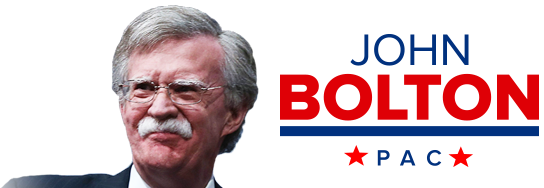One year after Hamas launched Iran’s “Ring of Fire” strategy with a barbaric attack against Israeli civilians, the Middle East has changed significantly. Now, the world awaits Jerusalem’s response to Tehran’s ballistic-missile attack last week, the largest such attack in history. It was the current war’s second military assault directly from Iranian territory against Israel, the first being April’s combined drone and ballistic/cruise missile barrage. We do not know how Prime Minister Bibi Netanyahu will respond, but it is nearly certain Israel’s answer will be far stronger than in April.
Meanwhile, Iran’s Ring of Fire is clearly failing. Israel is systematically destroying Hamas and Hezbollah, two critical foundations of Iran’s terrorist power. Whatever now happens between Jerusalem and Tehran, Iran’s efforts to debilitate Israel — and potentially the Gulf Arab states — with terrorist and conventional military assets may well suffer irreversible defeat.
According to Israel, 23 of 24 Hamas combat battalions have been destroyed, and what’s left remains under attack. Numerous Hamas leaders have been killed, not the least being Ismael Haniyeh in a supposedly secure compound in the heart of Tehran. Yahyah Sinwar remains at large; Hamas still holds Israeli civilian hostages; and Gaza’s enormous underground fortress is still partially in Hamas hands, but the ending is increasingly clear.
Hezbollah is still in the process of being destroyed. Israel’s killing of Hassan Nasrullah is already a turning point in Middle East history, so great was the shock in Lebanon and beyond. As effectively as against Hamas, or perhaps more, Jerusalem is relentlessly decapitating Hezbollah’s leadership, eliminating officials even as they are being promoted to the fill vacancies left by dead colleagues. Israel also claims to have destroyed half of Hezbollah’s enormous arsenal of missiles and launchers. That estimate seems high, and in any case leaves significant work remaining against Hezbollah’s estimated inventory of up to 150,000 missiles. Nonetheless, with Nasrullah’s demise and with its leadership decimated, Hezbollah is reeling.
The Gulf Arab states and others should now be considering what the future holds for the people of Lebanon and Gaza without Hezbollah and Hamas. What has been unthinkable for decades may now be within sight. As long as Hezbollah, the world’s largest terrorist group, controlled Lebanon and its government, there was no possibility to achieve political freedom and stability. Given the prospect of Hezbollah’s eradication as both a political and military force, urgent attention is required to the possibility of a society without intimidation and control from Iran. Lebanon with Hezbollah could and should be a very different place.
Gaza, although smaller, is more complicated. Palestinians are the only major refugee population since World War II that has not benefitted from the basic humanitarian principle of either returning to their country of origin or being resettled. Palestinians are, unfortunately for them, the exception, not the norm. The international community needs to confront the reality that Gaza is not and never will be a viable economic entity, even if some distant day combined as a state with “islands” on the West Bank. Far better, once Hamas is on history’s ash heap, to treat Gazans more humanely than simply being shields for their terrorist masters. It makes no sense to rebuild Gaza as a high-rise refugee camp. The most humane future for innocent Gazans is resettlement in functioning economies where their children have the prospect of a normal future.
Although Gaza and Lebanon have something to look forward to, the same cannot yet be said, sadly, for Yemen, Syria and Iraq. Yemen’s Houthi terrorists and Iranian-backed Shia militias in Syria and Iraq remain largely untouched after October 7. That should change.
Although the Houthis have launched missiles and drones against Israel, and Israel has retaliated, the Houthis main contribution to Iran’s Ring of Fire has been effectively closing the Suez Canal-Red Sea maritime passage. This blockade has been extremely harmful to Egypt through lost Suez Canal transit fees, and has hurt the wider world by significantly increasing shipping costs. A clear violation of the principle of freedom of the seas, the major maritime powers would be fully warranted to correct it through force, with or without UN Security Council approval.
For the United States, freedom of the seas has been a major element of national security even before the thirteen colonies became independent. In the last two centuries, America and the United Kingdom led global efforts to defend the freedom of the seas, and should do so now, eliminating the ongoing Houthi anti-shipping aggression. Cutting off Iran’s supply of missiles and drones is a first step, coupled with destroying existing Houthi stockpiles. Washington’s opposition to prior efforts by Saudi Arabia and the UAE to defeat the terrorists was misguided and should be reversed. Destroying Houthi military capabilities would afford Yemen the same opportunities now opening for Lebanon and Gaza, and should be urgently pursued.
In Iraq and Syria, as Iran’s power fades (and may well fade dramatically after Israel’s coming retaliation), action against the Iran-backed Shia militias should be the highest priority. In such circumstances, Baghdad at least may well think twice before demanding that the few remaining US forces still in Iraq and Syria be removed.
For Iran itself, loss of its terrorist proxies, after having invested billions of dollars over decades to build the terrorist infrastructure, will be a dramatic reversal of fortune. If Iran’s nuclear program is similarly devastated, the threat Iran has posed by seeking to achieve hegemony in the Middle East and within the Islamic world will likely be impossible for the foreseeable future. In these circumstances, the people of Iran may finally be able to achieve the downfall of the ayatollahs and the creation of representative government. It is far too early to be confident of such an outcome, but it is not too early to hope for it.
This article was first published in Independent Arabia on October 7, 2024. Click here to read the original article.


